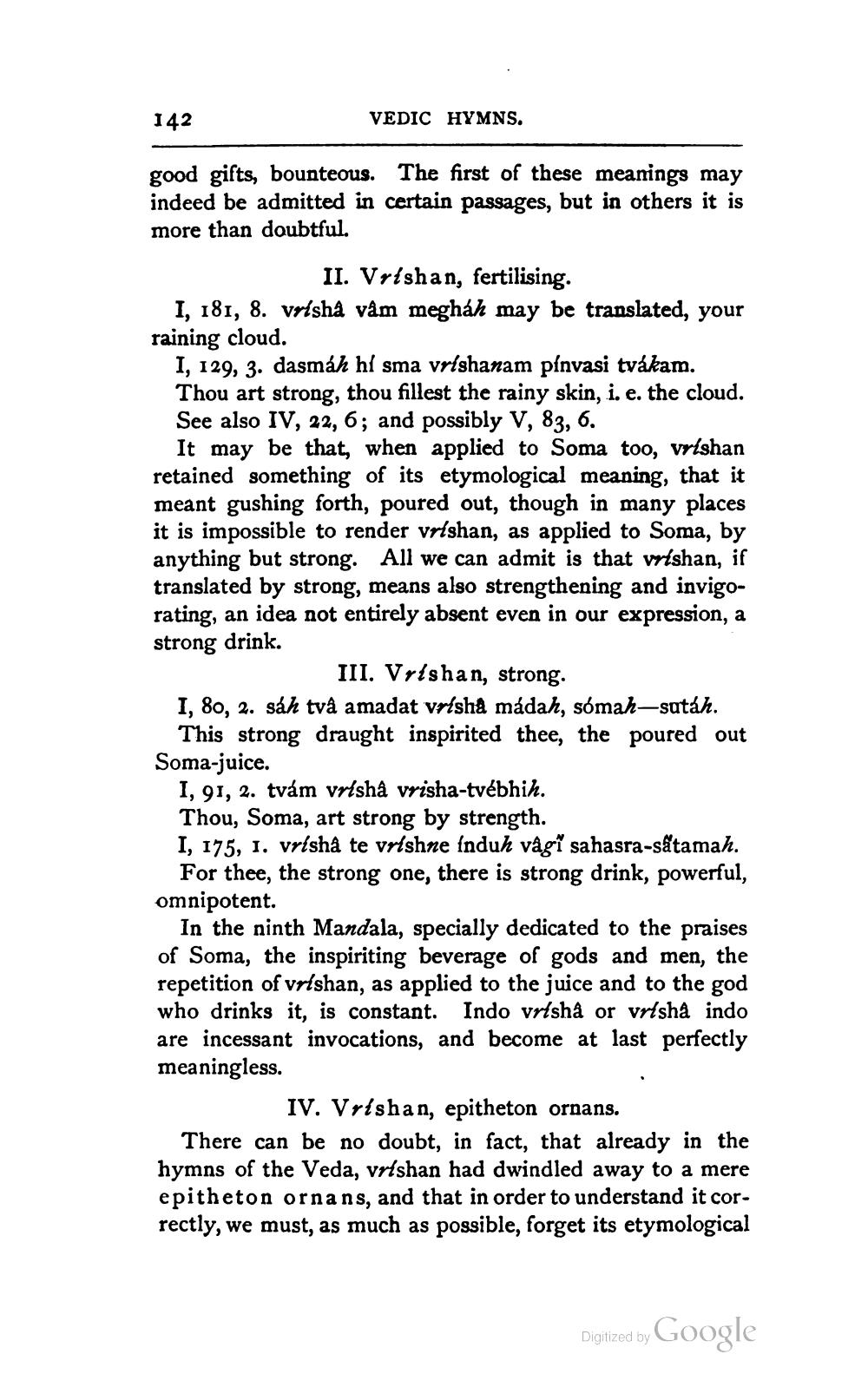________________
142
VEDIC HYMNS.
-
good gifts, bounteous. The first of these meanings may indeed be admitted in certain passages, but in others it is more than doubtful.
II. Vrishan, fertilising. I, 181, 8. vrlsha vám megháh may be translated, your raining cloud.
1, 129, 3. dasmáh hl sma vrlshanam pinvasi tvákam. Thou art strong, thou fillest the rainy skin, i. e. the cloud. See also IV, 22, 6; and possibly V, 83, 6.
It may be that, when applied to Soma too, vrlshan retained something of its etymological meaning, that it meant gushing forth, poured out, though in many places it is impossible to render vrlshan, as applied to Soma, by anything but strong. All we can admit is that vishan, if translated by strong, means also strengthening and invigorating, an idea not entirely absent even in our expression, a strong drink.
III. Vrishan, strong. I, 80, 2. sáh två amadat vr/sha mádah, sómah-satáh.
This strong draught inspirited thee, the poured out Soma-juice.
1, 91, 2. tvám vrlshå vrisha-tvébhih. Thou, Soma, art strong by strength. I, 175, 1. vrlsha te vrlshne Induh vagi sahasra-s&tamah.
For thee, the strong one, there is strong drink, powerful, omnipotent.
In the ninth Mandala, specially dedicated to the praises of Soma, the inspiriting beverage of gods and men, the repetition of vrlshan, as applied to the juice and to the god who drinks it, is constant. Indo vrtshå or vrlsha indo are incessant invocations, and become at last perfectly meaningless.
IV. Vrlshan, epitheton ornans. There can be no doubt, in fact, that already in the hymns of the Veda, vrlshan had dwindled away to a mere epitheton ornans, and that in order to understand it correctly, we must, as much as possible, forget its etymological
Digitized by
Digized by Google




